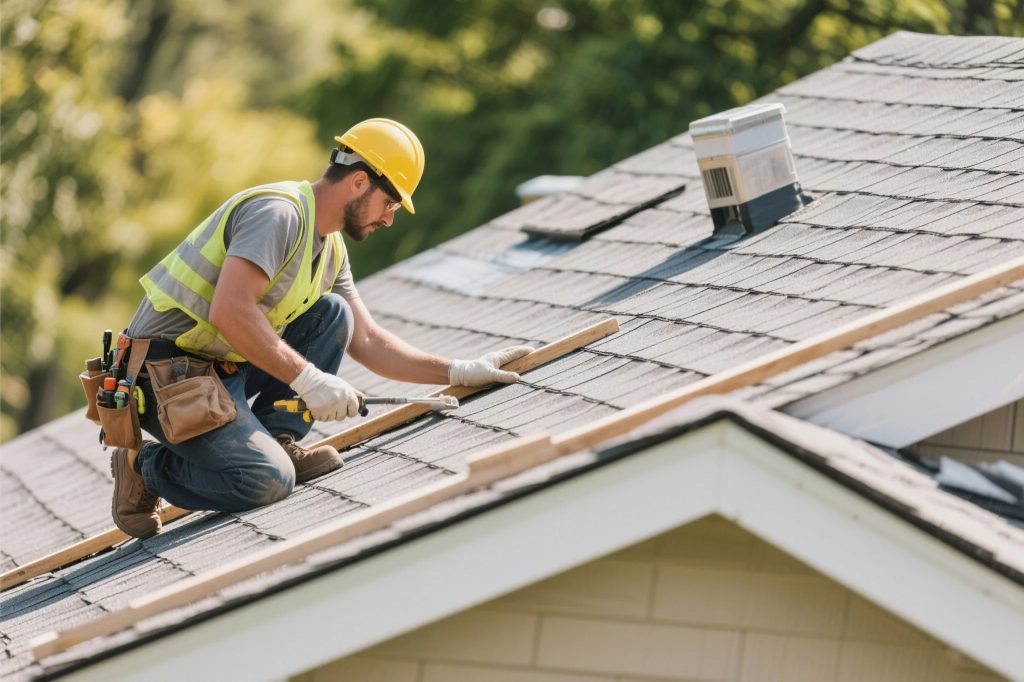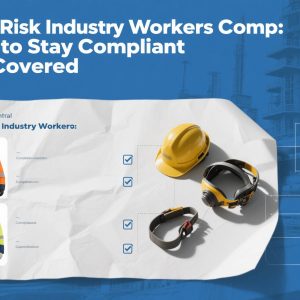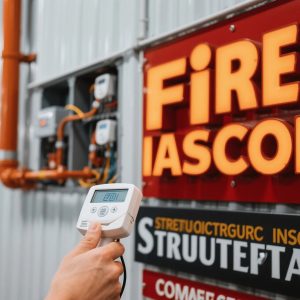Essential Insurance Requirements for Roofing Contractors
Operating as a roofing contractor comes with significant risks that make proper roofing insurance policy coverage not just prudent but legally mandatory in most states. The combination of working at heights, handling heavy materials, and exposure to unpredictable weather conditions creates a high-risk work environment that regulators take seriously. Nearly all states require roofing businesses to carry workers’ compensation insurance when they have employees, and many mandate general liability coverage as a condition of licensing. These requirements exist because roofers experience workplace injuries at nearly twice the rate of other construction trades, and the injuries tend to be more severe when falls occur. Contractors who fail to maintain proper coverage face not just financial risks but also potential license suspension, hefty fines, and even criminal penalties in some jurisdictions.
Understanding the nuances of contractor liability coverage for roofing work is crucial because standard construction policies often contain dangerous exclusions. Many general liability policies include “roofing exclusions” that eliminate coverage for any work performed above a certain height or involving specific materials. Some states require additional endorsements for tear-off work or require proof of completed operations coverage that extends protection long after the job is finished. The most comprehensive policies are written on specialized forms that specifically contemplate the unique risks of roofing work while meeting all state-mandated coverage minimums. These typically include provisions for falling object liability, debris removal coverage, and protection against damage to the roof being worked on – all common points of claims in roofing operations.
Workers’ Compensation: The Non-Negotiable Coverage
When it comes to workers comp for roofers, there’s virtually no flexibility – every state except Texas requires employers to carry coverage for their employees. Roofing classifications consistently rank among the highest for workers’ comp rates due to the frequency and severity of claims. A single fall from a roof can result in medical costs exceeding $100,000, not including lost wages or potential permanent disability benefits. Many states impose additional requirements on roofing contractors, such as maintaining higher coverage limits or participating in assigned risk pools if they have poor loss histories. Some states even require proof of workers’ comp coverage before issuing building permits for roofing projects.
The cost of high-fall job insurance through workers’ comp can be managed through proactive safety programs. Many insurers offer substantial premium discounts for contractors who implement certified fall protection systems, conduct regular safety training, and maintain detailed documentation of safety protocols. Some states provide additional incentives through premium credit programs for contractors with exceptional safety records. Perhaps most importantly, proper workers’ comp coverage protects not just employees but the business itself from devastating lawsuits that could arise from workplace injuries. In today’s litigious environment, even a small residential roofing operation can’t afford to gamble with this mandatory protection.
General Liability Insurance Requirements
While not universally mandated at the state level, roofing business protection through general liability insurance is required by most local jurisdictions and virtually all commercial clients. Standard policy requirements typically start at $1 million per occurrence with $2 million aggregate, though many commercial projects now demand higher limits. What makes liability coverage particularly crucial for roofers is the potential for third-party property damage claims – a dropped tool could damage a client’s landscaping, or a wind gust might send roofing materials into a neighbor’s property. Many states that don’t mandate liability coverage at the state level still require it as a condition of contractor licensing, making it effectively compulsory for legitimate operations.
The specialized nature of roofing insurance policy liability coverage becomes apparent when examining common claims scenarios. Standard policies might exclude water damage claims that occur when a newly installed roof leaks, or they might not cover damage to the roof itself during installation. Many states require specific endorsements for “work performed” or “products-completed operations” to ensure coverage extends beyond the active job period. Savvy roofing contractors work with specialized agents to ensure their policies meet both legal requirements and practical protection needs, with particular attention to state-specific roofing exclusions that could leave them dangerously underinsured.
Commercial Auto Insurance for Roofing Operations
While not unique to roofing, contractor liability coverage for vehicles represents another area where states impose mandatory minimums that roofing businesses must meet. Every state requires some level of auto liability coverage for vehicles used in business operations, with minimums typically ranging from $25,000 to $100,000 per person for bodily injury. However, these state minimums are woefully inadequate for most roofing operations given the heavy equipment and materials being transported. Many roofing contractors opt for $1 million in auto liability coverage, especially when hauling expensive equipment or working on commercial projects with higher insurance requirements.
The importance of proper workers comp for roofers extends to vehicle operations as well, as many states consider injuries sustained while traveling to or from job sites as compensable workers’ comp claims. Some states have specific “vehicle endorsement” requirements for workers’ comp policies when employees regularly operate company vehicles. Roofing contractors should also consider hired and non-owned auto coverage, which protects against liability when employees use personal vehicles for work purposes or when renting vehicles for specific projects. These coverages are often overlooked but can be crucial in preventing coverage gaps that could violate state insurance requirements.

Additional State-Specific Mandatory Coverages
Beyond the core policies, many states impose additional high-fall job insurance requirements specific to roofing operations. Some coastal states mandate windstorm coverage for roofers working in hurricane-prone areas. States with frequent hailstorms often require specific endorsements for hail damage liability. Several states have implemented “trigger laws” that require proof of additional pollution coverage when working with certain roofing materials. Perhaps most importantly, an increasing number of states now require roofing contractors to carry surety bonds as additional financial protection for consumers, with bond amounts varying significantly by jurisdiction.
The complexity of roofing business protection requirements means contractors operating across state lines must be particularly diligent. A policy that meets requirements in one state might be non-compliant just across the border. Some states require specific policy language about debris removal or disposal of old roofing materials. Others mandate higher liability limits for commercial roofing work versus residential. The most thorough roofing contractors maintain insurance files for each state where they operate, with clear documentation of how their coverage meets or exceeds each jurisdiction’s specific requirements.
Penalties for Non-Compliance with Insurance Mandates
The consequences of failing to maintain proper roofing insurance policy coverage can be severe and vary significantly by state. Nearly all states impose substantial fines for operating without required workers’ compensation, often calculated per employee per day of non-compliance. Many states will issue stop-work orders that shutter operations until proper coverage is obtained and verified. Some jurisdictions pursue criminal charges against repeat offenders or owners who knowingly operate without coverage. Perhaps most damaging are the situations where uninsured claims occur – states typically step in to pay workers’ comp benefits and then aggressively pursue the employer for reimbursement plus penalties.
For contractor liability coverage violations, penalties often include license suspension or revocation, making it impossible to legally operate or pull permits. Some states maintain public databases of uninsured contractors, damaging business reputations. Many municipalities now require proof of insurance at the permit application stage, preventing uninsured roofers from even starting projects. In the event of a claim, operating without required insurance can also jeopardize a contractor’s legal defense, as courts often view insurance violations as evidence of negligence. Savvy roofing business owners treat insurance compliance with the same seriousness as tax obligations or safety regulations.
Best Practices for Maintaining Compliant Coverage
Staying on top of workers comp for roofers and other insurance requirements requires proactive management rather than reactive compliance. The most successful roofing contractors conduct annual insurance reviews with specialized agents who understand both state requirements and roofing industry risks. Many implement certificate tracking systems to ensure all subcontractors maintain adequate coverage as required by state laws. Forward-thinking operations maintain detailed records of safety training and equipment inspections, as these documents can be crucial during insurance audits or when qualifying for premium discounts.
The evolving nature of high-fall job insurance regulations means contractors can’t rely on outdated information. Many states have recently increased minimum coverage requirements or added new endorsements for specific roofing activities. Some have implemented “ghost policy” options for sole proprietors without employees, while others have tightened rules about independent contractor classifications. The most compliant roofing businesses stay informed through industry associations, continuing education requirements, and regular consultations with insurance professionals who specialize in roofing operations.
Tailoring Coverage to Your Specific Roofing Business
While meeting state minimums is mandatory, smart roofing contractors view roofing business protection as a strategic investment rather than just a compliance cost. The type of roofing work performed significantly impacts coverage needs – metal roof installers face different risks than asphalt shingle specialists. Commercial roofers working on high-rise buildings need different coverage than residential contractors. Many insurers now offer specialized policies for roofing contractors who focus on specific niches like historic restoration, solar panel integration, or green roofing systems.
The most comprehensive roofing insurance policy programs combine mandatory coverages with optional protections that address specific business risks. Equipment breakdown coverage can protect against losses when critical tools fail. Inland marine insurance covers materials in transit or stored at job sites. Many contractors now add cyber liability coverage to protect client data collected during estimates and projects. While not state-mandated, these additional coverages can mean the difference between surviving a claim and going out of business when unexpected losses occur.
Navigating Insurance Requirements as You Grow
The insurance needs of a roofing business evolve significantly as the company grows, and many state requirements change based on workforce size and revenue levels. What begins as a simple contractor liability coverage policy for a sole proprietor can quickly expand to include multiple coverage layers as employees are added and projects increase in scale. Many states implement “experience rating” systems for workers’ comp once a business reaches certain payroll thresholds, directly tying premiums to claim history. Commercial auto requirements often become more stringent as fleets expand beyond a few vehicles.
Successful roofing contractors plan for these workers comp for roofers transitions well in advance. Some implement graduated insurance programs that automatically adjust coverage as key metrics like payroll or vehicle count reach predetermined levels. Others work with insurance professionals to create multi-year coverage roadmaps that anticipate growth milestones and the corresponding regulatory requirements. Perhaps most importantly, growing roofing businesses maintain meticulous records of safety programs and claims history, as these documents become increasingly important when negotiating terms with insurers as the operation scales up.





